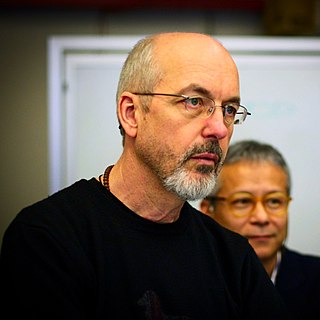A Quote by Seth Godin
The wettest, weirdest environment is human interaction. Whatever we build gets misunderstood, corroded and chronic, and it happens quickly and in unpredictable ways. That's one reason why the web is so fascinating-it's a collision between the analytic world of code and wet world of people.
Related Quotes
This world is not the same to all people. Each one lives in his little domain....Peace and harmony may reign in one person's world; where strife and restlessness in anothers. But whatever the circumstances of one's environment, it consists of both an inner and an outer world. The outside world is the one in which your life engages in action and interaction. The world inside of you determines your happiness or unhappiness.
The indigenous understanding has its basis of spirituality in a recognition of the interconnectedness and interdependence of all living things, a holistic and balanced view of the world. All things are bound together. All things connect. What happens to the Earth happens to the children of the earth. Humankind has not woven the web of life; we are but one thread. Whatever we do to the web, we do to ourselves.
Most simply, 'present shock' is the human response to living in a world that's always on real time and simultaneous. You know, in some ways it's the impact of living in a digital environment, and in other ways it's just really what happens when you stop leaning so forward to the millennium and you finally arrive there.
The human animal is a fascinating beast. Watching people and trying to learn how and why they do things, and to engage in the somewhat futile attempt to explain them...it's my reason for living I guess...to ask 'why?'. I don't know what else to do with myself. In some strange way it's probably an attempt to understand myself and my own relationship to the world.
If our well-being depends upon the interaction between events in our brains and events in the world, and there are better and worse ways to secure it, then some cultures will tend to produce lives that are more worth living than others; some political persuasions will be more enlightened than others; and some world views will be mistaken in ways that cause needless human misery.
Absent the net, we certainly couldn't have organized in 190 countries around the world. It's no substitution for face to face interaction - that's why we have "days of action" where people are in real contact with each other - but it's the cheap (and low-carbon) way to do an awful lot of the planning and organizing. And we can build, for $20k, a website as good as one Exxon can build for $20 million.





































